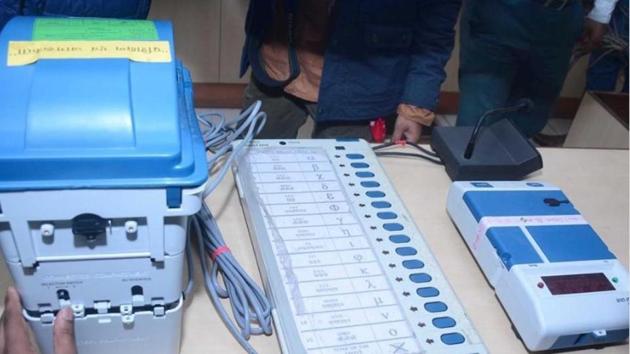Horse-trading and voters’ travails
The election season is upon us, and though not entirely unusual during elections as history reveals, defections seem to be in overdrive this year
The election season is upon us and in the past few weeks, I’ve been reading the morning newspapers with a sense of vicarious excitement, anticipation, and some trepidation too, to find out which politician is headed where.

Some might ask why the trepidation, but imagine you have zeroed in on a candidate (or party) for some while, only to find that the person has crossed over to the other side!
There have been defections galore. Not just upstarts, many stalwarts associated with political parties for decades too, have jumped ship, making it a roller-coaster ride with nobody sure what’s likely to happen next.
Though not entirely unusual during elections as history reveals, defections seem to be in overdrive this year. A friend who monitors these things more diligently, says pan India, the number of “turncoat” politicians is possibly in excess of 250.
This number could go up in the next few days with Maharashtra alone reaching the three-figure mark, the friend says. We are in the cricket season where such landmark has great significance, but this would rate as a dubious century in politics.
Defections in politics is a fascinating subject. What compels this? Is it a change of heart and ideology, is it insecurity or is it just opportunism? I reckon all three could play a role, not necessarily all together.
Going by the timings of these defections and reasons proffered – by individuals and parties – the dominant factor seems to be hubris for power and to remain relevant in the political stakes, at the local, city, state or national level.
There is also the other aspect, no less fascinating: the fate of the voter in this melee. Suppose you have supported a candidate from a party of your choice for several years, and that person decides to defect, what do you do?
Do you stick by the party even if the new nominee is a dud, or more excruciatingly, someone who has crossed over from the party whose ideology you abhorred?
I suppose most people plug into the larger narrative of the party that suits their ideology and hope for the best. But an environment where horse-trading is rampant throws up serious concerns for voters.
Happily, the situation is not complex where Mumbai is concerned. Defections haven’t riled the scenario. Though candidates for all the six seats are yet to be finalised, there will be straightforward contests between the two major alliances.
How the elections will play out and who will win, is the million-dollar question that is hogging conversations everywhere. But that is for pundits to answer. What’s relevant here is how the electorate responds to the elections come, April 29.
I was at the launch of a seminal book by Dr Prannoy Roy and Dorab Sopariwalla (The Verdict, which maps trends on how India has voted historically) the other day, and two issues that they discussed I found extremely pertinent.
One: the number of women voters has grown exponentially over the years, and in many constituencies and states, exceeds that of men. Sadly, however, 21 million women don’t feature in electoral rolls, which means they are disenfranchised for no fault of theirs.
This is something that needs to be looked into with utmost seriousness and urgency. More women need to be encouraged to vote to make the ballot exercise as inclusive as possible.
In this context, the decision of the Maharashtra government to have 288 all-women booths (as reported by HT on Thursday) is welcome.
The second issue discussed by Dr Roy and Soparilwalla was about the apathy of urban voters. Having crisscrossed the country many times over several elections, their experience shows that those living in smaller cities, towns and in rural India seem to have greater desire to vote than those in major metros.
Mumbai – especially the south Mumbai constituency – is part of this unhappy syndrome, where voters remain apathetic, preferring to do something else on the appointed date instead of getting their index finger inked.
For all the challenges and complexities that democracy throws up, that is an unpardonable abdication of responsibility.



